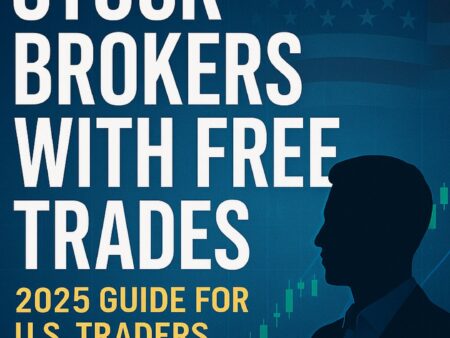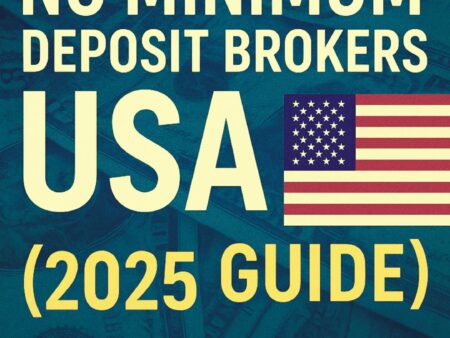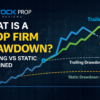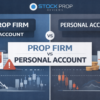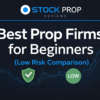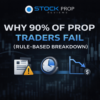Choosing your first online broker is a big decision. With the rise of commission-free trading, mobile apps, and digital investing tools, beginners in the U.S. now have more opportunities than ever to enter the stock market. But with so many platforms competing for your attention, how do you choose the right one?
In this guide, we break down the best online brokers for beginners in the U.S., based on platform usability, pricing, educational resources, and customer support. Whether you’re buying your first stock or looking to explore ETFs, this article will help you confidently get started.
Why Choosing the Right Online Broker Matters
If you’re just getting started in trading or investing, your broker will be your most important tool. A good beginner-friendly broker can:
- Make it easy to understand the markets
- Provide free or affordable trading options
- Offer educational resources to improve your skills
- Help you avoid unnecessary fees
- Guide you toward long-term success
With the right broker, you’ll spend more time learning and growing, and less time navigating complex systems or paying high fees.
Best Online Brokers for Beginners in 2025
Here’s a quick comparison of the top online brokers in the U.S. for new traders:
| Broker | Stock/ETF Commission | Account Minimum | Best Feature | User Rating |
|---|---|---|---|---|
| Fidelity | $0 | $0 | Strong research tools | 4.8/5 |
| Charles Schwab | $0 | $0 | Robust education resources | 4.7/5 |
| Robinhood | $0 | $0 | Easiest mobile interface | 4.5/5 |
| TD Ameritrade | $0 | $0 | Thinkorswim platform | 4.6/5 |
| E*TRADE | $0 | $0 | Great for options trading | 4.6/5 |
| SoFi Invest | $0 | $0 | Fractional investing | 4.3/5 |
1. Fidelity Investments
Best for: Beginners who want strong research tools and long-term investment options.

Pros:
- $0 commissions on U.S. stocks and ETFs
- Excellent research and data tools
- Fractional shares available
- High-quality customer support
Cons:
- Advanced features may be overwhelming at first
Fidelity is consistently ranked among the best for beginners thanks to its balance of low costs, helpful resources, and long-term investing focus.
2. Charles Schwab
Best for: Beginner investors who want to learn the basics and build retirement portfolios.
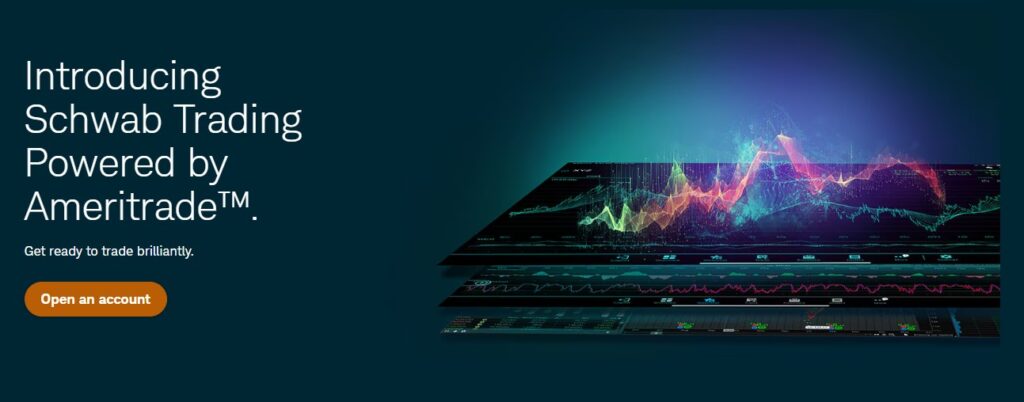
Pros:
- Free stock and ETF trading
- Broad educational content library
- No account minimum
- Schwab Stock Slices for fractional investing
Cons:
- Interface feels outdated in some areas
Charles Schwab is a full-service broker that offers a wealth of educational resources, making it a great place for new investors to build knowledge and confidence.
3. Robinhood
Best for: New traders who prefer mobile trading and quick, simple execution.
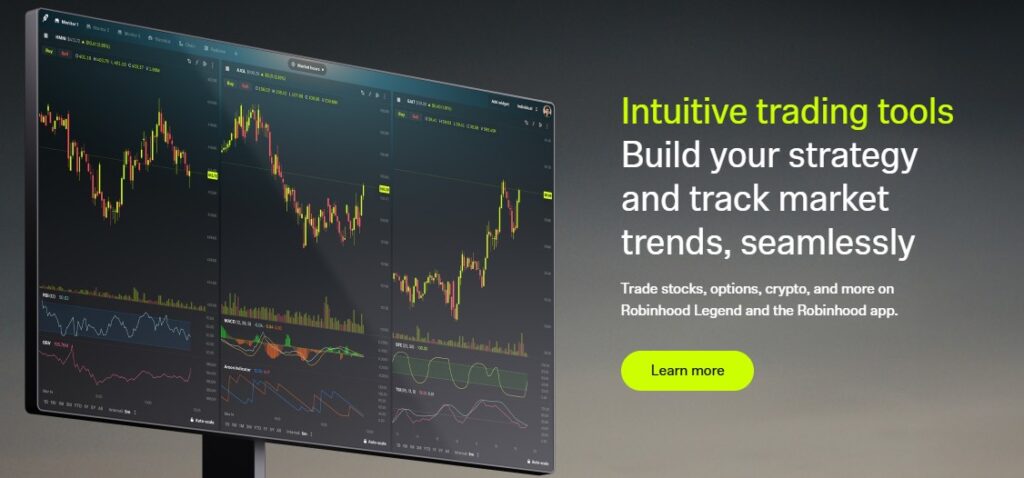
Pros:
- Intuitive and beginner-friendly app
- Commission-free trading of stocks, ETFs, and crypto
- No account minimum
- Instant deposits and easy-to-use interface
Cons:
- Limited research and analysis tools
- No retirement accounts (IRAs)
Robinhood made zero-commission trading mainstream, and it remains one of the easiest platforms for beginners to use. Just be aware of its limited functionality beyond basic trading.
4. TD Ameritrade
Best for: Beginners who want to grow into more advanced trading strategies.

Pros:
- Thinkorswim platform is ideal for learning technical analysis
- Tons of free educational content
- Paper trading account available
- Great customer service
Cons:
- Can feel overwhelming for absolute beginners
TD Ameritrade is a powerful platform with top-tier tools. Beginners can start slow and grow into its full capabilities over time.
5. E*TRADE
Best for: Beginners who are interested in learning options trading.
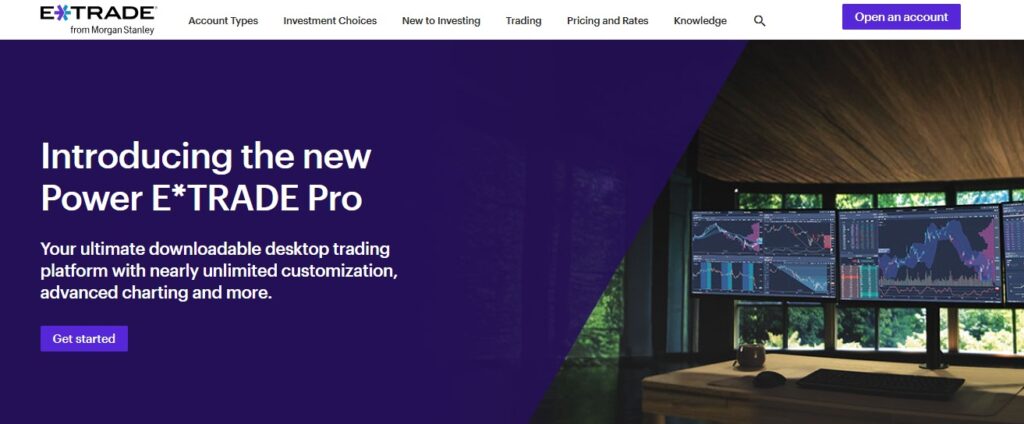
Pros:
- $0 commission stock and ETF trades
- Power E*TRADE platform is intuitive and feature-rich
- Strong educational center and webinars
- Excellent mobile app
Cons:
- Some features may feel cluttered to new users
E*TRADE strikes a good balance between simplicity and power. It’s ideal if you want to eventually branch into more active or options trading.
6. SoFi Invest
Best for: Beginners looking to start small with fractional shares and automated investing.
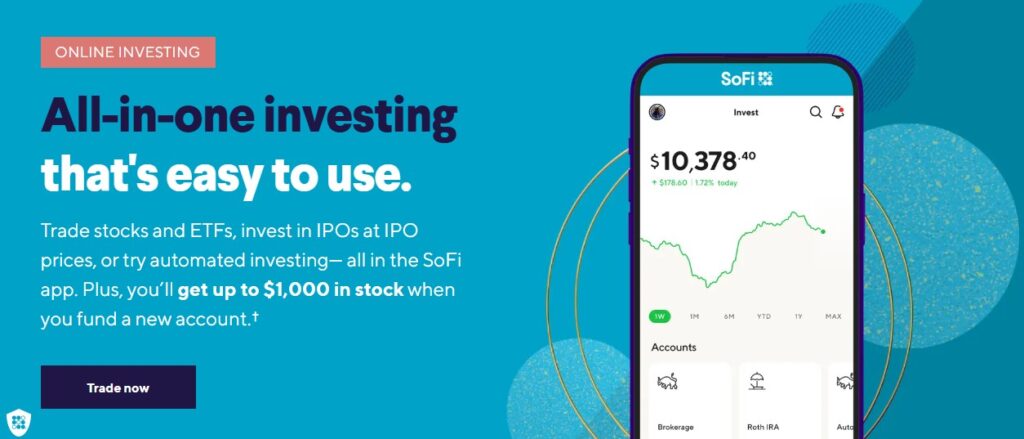
Pros:
- $0 stock and ETF commissions
- Fractional share investing
- Simple mobile app
- Offers robo-advisory and financial planning
Cons:
- Limited in-depth analysis tools
SoFi Invest is a great starting point if you want simplicity, fractional shares, and additional financial tools beyond trading.
What to Look for in a Beginner-Friendly Broker
When you’re just starting out, here are the most important features to look for:
1. Low or No Commissions
- Look for brokers that offer $0 commissions on stocks and ETFs.
- Watch out for hidden fees on options or mutual funds.
2. Ease of Use
- A clean, intuitive platform helps you focus on learning.
- Mobile apps are great if you prefer trading on the go.
3. Educational Resources
- Beginners should choose brokers that offer videos, tutorials, and articles.
- Paper trading accounts help you practice risk-free.
4. Fractional Shares
- Being able to invest with $5 or $10 makes it easier to start.
5. Account Minimums
- Zero minimum deposit requirements allow you to start small.
6. Customer Support
- Responsive and accessible support teams are crucial for new traders.
Commission & Pricing Comparison (2025)
| Broker | Stock/ETF Trades | Options (per contract) | Retirement Accounts | Robo-Advisor Option |
| Fidelity | $0 | $0.65 | Yes | Yes |
| Charles Schwab | $0 | $0.65 | Yes | Yes |
| Robinhood | $0 | $0 (with Gold) | No | No |
| TD Ameritrade | $0 | $0.65 | Yes | No |
| E*TRADE | $0 | $0.65 | Yes | Yes |
| SoFi Invest | $0 | N/A | Yes | Yes |
No Capital? Consider Stock Prop Firms Like TradeThePool
If you’re confident in your skills but don’t have the capital to trade, prop trading firms are worth exploring.
Many traders are also exploring TradeThePool stock prop firm in 2025 — these stock prop firms fund traders, so you can trade with little or no deposit.
What Is TradeThePool?
TradeThePool is a proprietary trading firm that offers funded accounts to traders who pass a brief evaluation. Instead of trading with your own money, you use the firm’s capital and keep a percentage of the profits.
Why Beginners Are Interested:
- No large deposit needed when trading with a prop firm
- Access to firm capital up to $260,000
- Remote trading with clear daily risk limits
- Supportive trader community
Prop firms help you get funded to trade remotely, and for skilled traders with low starting capital, it’s a practical path to profitability. Visit tradethepool.com to learn more.
FAQ: Best Online Brokers for Beginners
1. What is the best online broker for beginners in the USA?
Fidelity and Charles Schwab are top picks for beginners due to their free trades, research tools, and strong customer support.
2. Are there any brokers with no minimum deposit?
Yes. Robinhood, SoFi, TD Ameritrade, and Schwab all have no account minimums.
3. Can I start trading with just $10?
Yes. Platforms like Robinhood, SoFi, and Fidelity offer fractional shares so you can invest with as little as $1–$10.
4. What are commission-free brokers?
These brokers let you buy and sell stocks or ETFs without paying any trading fees.
5. Do beginner brokers offer educational tools?
Yes. TD Ameritrade, Schwab, and Fidelity offer excellent learning centers and tutorials.
6. Can I practice trading before using real money?
Yes. Paper trading accounts like TD Ameritrade’s Thinkorswim are perfect for practice.
7. Is it safe to trade through online brokers?
Reputable brokers are regulated by FINRA and the SEC, making them safe for trading.
8. What if I don’t have money to invest?
You can start with fractional shares, or consider prop firms like TradeThePool that fund you to trade.
Final Thoughts
Starting your trading journey doesn’t have to be complicated. With the right beginner-friendly broker, you can learn, grow, and succeed without facing high costs or confusing platforms.
Want to start trading without using your own money? Explore the top-rated stock prop firm tradethepool.com.
